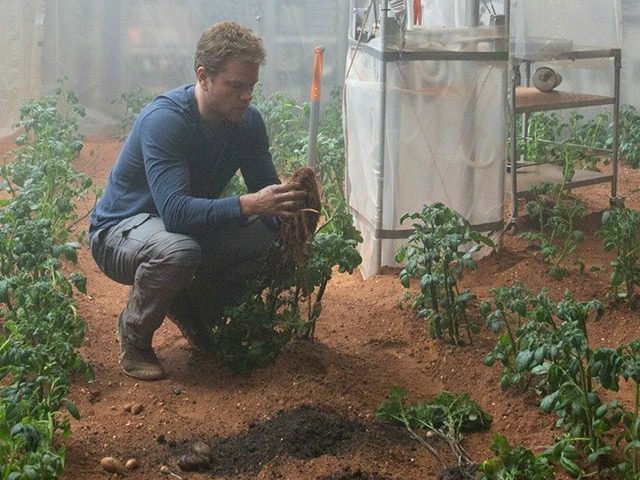A study by the International Potato Center points to the possibility of growing potatoes in some of the most extreme environments on our planet — and beyond.
The “proof of concept” experiment that began on Valentine’s Day 2017 intended to prove that, with the right techniques, potatoes could be grown in some of the harshest places on Earth. To make their point, they grew some in a Martian environmental simulation.
The experiment was done in a CubeSat, a small self-contained box for work that doesn’t justify the use of an entire independent satellite. The environment within this particular CubeSat was built by engineers from Lima, Peru’s University of Engineering and Technology. It was “based upon designs and advice” from NASA’s Ames Research Center in California. This is how it worked, according to the CIP:
The CubeSat houses a container holding soil and the tuber. Inside this hermetically sealed environment the CubeSat delivers nutrient rich water, controls the temperature for Mars day and night conditions and mimics Mars air pressure, oxygen and carbon dioxide levels. Sensors constantly monitor these conditions and live streaming cameras record the soil in anticipation of the potato sprouting.
And it worked! You can still catch a live feed of the determined tubers sprouting if you’d like to see for yourself.
“Potatoes on Mars” sought to “understand how potatoes might grow in Mars conditions and also see how they survive in the extreme conditions similar to what parts of the world already suffering from climate change and weather shocks are already experiencing.” According to NASA ARC’s Chris McKay, “This [research] could have a direct technological benefit on Earth and a direct biological benefit on Earth.”
SETI Institute Research Associate Julio Valdivia-Silva called the study “an important phase of this experiment,” affirming that “if the crops can tolerate the extreme conditions that we are exposing them to in our CubeSat, they have a good chance to grow on Mars.”
They will continue with “several rounds of experiments to find out which potato varieties do best,” in order to find the “minimum conditions [that] a potato needs to survive.” According to CIP Potato Breeder Walter Amoros, potatoes possess a “great genetic capacity for adaptation to extreme environments.” He added that “It was a pleasant surprise to see that potatoes we’ve bred to tolerate abiotic stress were able to produce tubers in this soil.”
Potato clones can even be adapted to extremely dry, salty soil. A 2016 experiment showed that “Mars analog” soil collected from the Pampas de La Joya desert in Southern Peru would grow the rugged crop, with a little boost from fertilized Earth soil “for both nutrition and structure.”
Amoros and the CIP hope that these experiments will lead to increased “food security” in environments typically hostile to the growth of crops, or ones that may become hostile in the future. And with just the right booster soil, we may see another generation of specialized potatoes sprouting from the red sands of Mars.
Follow Nate Church @Get2Church on Twitter for the latest news in gaming and technology, and snarky opinions on both.

COMMENTS
Please let us know if you're having issues with commenting.